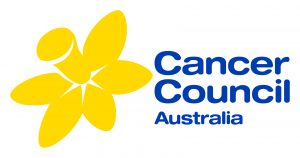
Cancer Council is committed to limiting the burden of cancer on the 125,000 Australians diagnosed each year.
They aim to prevent cancer via research and prevention programs, as well as promoting evidence-based information and offering advocacy and support for those living with this condition.
Read more about Cancer Council
Role of pathology
Pathology is vital for diagnosis of cancers. Tests such as pap smears or bowel cancer screening can detect cancerous changes early, providing opportunity for minimally invasive treatment. Pathologist reports on tumours provide detail about the type of cancer and how best to treat it. Samples sent to registries provide a wealth of material for research, improving outcomes into the future. Genetic testing in pathology labs can also identify families at increased risk of developing cancer due to genetic changes. Family members can take steps to lower their risk or increase surveillance.
Learn more about pathology tests and cancer
Ron’s story

First diagnosed in 2001 with kidney cancer, Ron has since undergone numerous operations to remove his left kidney, left and right adrenal glands, his right lung and parts of the bones in his right leg.
Pathology has been vital throughout every stage of Ron’s treatment and he now has blood tests every 1-2 months to monitor how his body is being affected by both the cancer and the chemotherapy.
